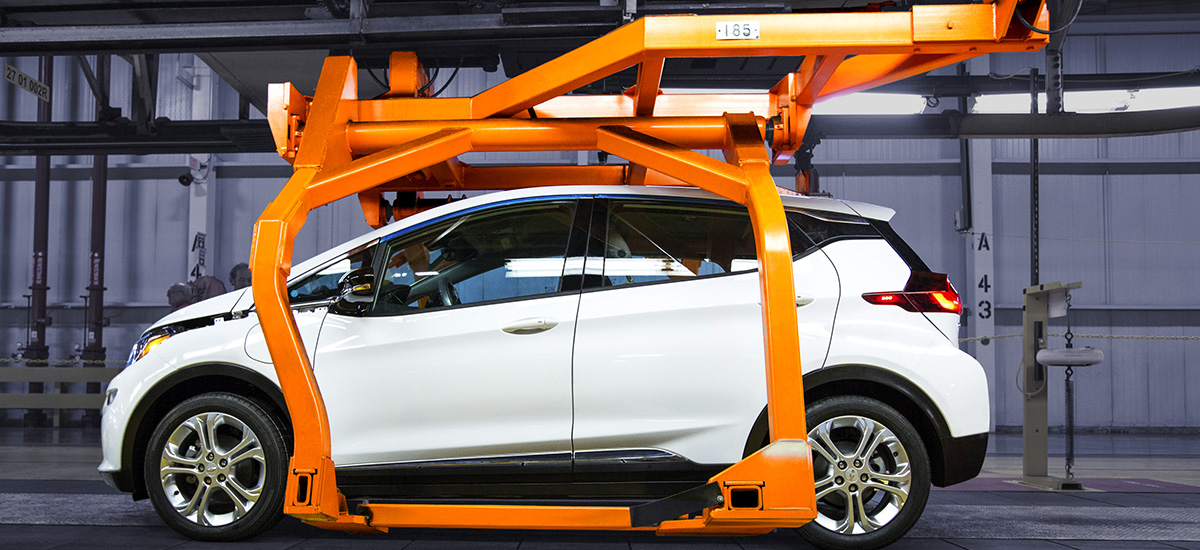
 Your Credit Estimate
Your Credit Estimate
 Your Credit
Your Credit
Your zip code helps us provide you with the most accurate vehicle pricing and vehicle availability.
We estimate your credit score to give you an idea of your monthly payments. To get an accurate payment amount, complete our credit application by clicking the Start Credit Application button below.
start credit application
Of all the deterrents keeping people from buying electric cars, up-front expense is probably one of the biggest factors. To battle that problem, automakers are finding innovative ways and new parts to decrease the cost of EVs.
One of the most notable improvements are the use of new batteries. American automakers, Chevy and Tesla, have developed EVs that use less-expensive nickel-rich lithium ion batteries. These batteries not only make the car more affordable, but they also provide the car with a much longer range on a full charge.
That new battery is the electric force behind the battle between the Tesla Model 3 and the all-new 2017 Chevy Bolt -- and that battle just got a lot hotter. Both EVs will be priced around $37,000 and they will both be eligible for $7,500 federal tax credit that will reduce the price tag to $30,000. However the 2017 Chevy Bolt has two big advantages to buyers -- availability and total electric range.
In Sept. 2016, General Motors surprised the auto industry with their announcement that the 2017 Chevy Bolt has an EPA-certified range of 238 miles, which is 23 more miles than Tesla models offer. Additionally, the 2017 Chevy Bolt will be available to buyers in late 2016, and availability for the Tesla Model 3 is pretty unclear. While the Tesla Model 3 has 325,000 reservations, industry professionals are skeptical of Tesla's goal to fulfill those orders in 2018.
Nickel-rich lithium ion batteries and farther all-electric distances are just the beginning of it. The Chevy Bolt takes innovation a step further with the one-pedal regenerative braking system. Engineers have found that one-pedal driving can add up to five-percent range to the Bolt EV. So in addition to an increased driving range, this system will not increase the price of the car.
With the aid of software controls, the Bolt’s regen braking system will allow the driver to stop the Chevrolet Bolt EV without having to use the brake pedal in certain driving conditions. The braking method can be controlled with four selectable modes, all of which offer different levels of regenerative braking strength.
Don’t think EVs are going away either. Automakers are still looking for new ways to improve EVs. While lithium-ion batteries offer a more affordable and better battery than old batteries, they have a low energy density and they don’t pack much power. Alternative power sources that may start being used in EVs include lithium air, solid state batteries and lithium sulfur.
Keep your eye out for the all-new 2017 Chevy Bolt coming to NowCar in late 2016.